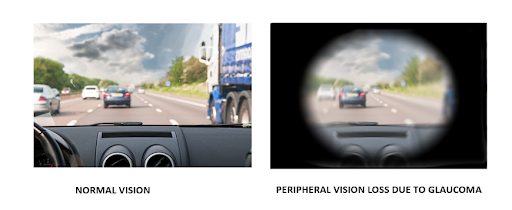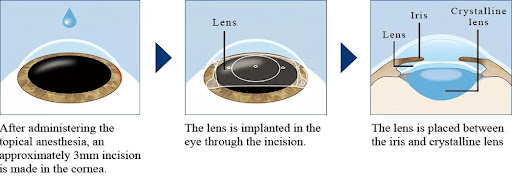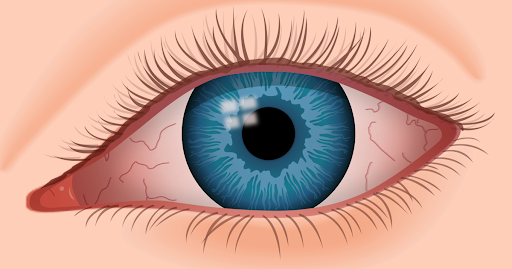The American Optometric Association notes that glaucoma is a serious eye condition characterized by loss of nerve tissue if left untreated, which could result in vision loss. While the exact cause of glaucoma is still unknown, good thing that there are medications and treatments available.
Our proficient ophthalmologists at Eyeonce Eye Clinic, Paik Dong Won, Head Director, and Jung Sae Rom, Medical Director, are well-known experts in treating glaucoma. With their vast knowledge, experience, and meticulous medical care, you will surely regain your clear vision.
What is glaucoma?
It is an eye condition where abnormally high intraocular pressure damages the optic nerve. The elevated intraocular pressure causes stress on the optic nerve while restricting blood flow, resulting in a more damaged nerve. Glaucoma is a severe eye condition that affects millions of people worldwide. Sadly, only a few recognize that they have glaucoma once it is too late.
What are the common symptoms of glaucoma?
As mentioned, only a few individuals know that they have glaucoma. Take note of the following symptoms for early diagnosis and treatment:
- Feeling of diminished vision – This only means that your vision is no longer evident as before, and you might be having difficulty seeing things far away or close up.
- You see halos and rainbows around bright lights – This symptom suggests that when you look at bright lights, you may notice visible circles of light surrounding them or see colors like a rainbow. It is even more evident at night or in low-light conditions.
- You feel like foreign substances are in your eyes – Your eyes feel like they contain a grain of sand or eyelash, resulting in an uncomfortable feeling and may cause your eyes to become red and watery.
- Headaches, nausea, and eye redness – These symptoms can occur if you have glaucoma. Headaches are due to increased pressure in your eye, and nausea can result from the headache. Eye redness occurs due to increased pressure in the eye.
It is imperative to note that not all patients may experience all symptoms at once. It is highly advisable to have regular eye examinations with your eye doctors, such as our trusted ophthalmologists at Eyeonce Eye Clinic, to detect glaucoma early and take the necessary medication.
What are the available treatment methods for glaucoma at Eyeonce Eye Clinic?
Here in our clinic, we always provide the best treatment possible for our patients for their eye conditions, including glaucoma, which is the following:
- Medication treatment – This option involves using eye drops, pills, or other medications to aid in reducing the pressure in the eye and slow the progression of glaucoma. Medical treatment works by either decreasing the amount of fluid produced in the eye or increasing fluid drainage from the eye.
- Laser treatments – It is also known as laser trabeculoplasty, which involves using a laser to target the drainage system in the eye and increase fluid outflow. Laser treatment is typically performed in an outpatient setting and does not require an incision.
- Filtering surgery – Also known as trabeculectomy, filtering surgery involves creating a small hole in the white part of the eye, allowing fluid to drain out of the eye and reduce pressure. Filtering surgery is performed in an operating room under local anesthesia.
- Drainage tubes are shunts or stents, small devices surgically implanted in the eye to help drain fluid and reduce pressure. Drainage tubes are best for patients with severe glaucoma or those not responding well to other treatments.
Our expert doctors at Eyeonce ensure you receive the treatment option that best answers your needs. They always consider factors such as the type and severity of your glaucoma, overall health, and preference, ensuring that you are guided every step of the way.
What causes glaucoma?
Though the causes of glaucoma are still unknown, the following causes can be associated with this eye condition:
- Old age – This is because our eyes’ anatomy and physiology change as we age, thus putting us at high risk of developing glaucoma.
- Genetics – If a close family member has glaucoma, there is a high chance that you might have it as well.
- Physical trauma – Injuries directly affecting the head and eyes can potentially damage the eye’s drainage system, which can cause a buildup of pressure within the eye.
- Impaired blood circulation – Poor blood flow to the optic nerve can increase the risk of glaucoma. It may be due to diabetes or high blood pressure, which are known to damage blood vessels in the eye.
- High Myopia – Individuals with high myopia or nearsightedness may be at higher risk of developing glaucoma. They have elongated, which can pressure the optic nerve and increase the risk of damage.
What are the types of glaucoma?
Glaucoma can be identified as the following:
- Primary open-angle glaucoma – This is the most common form of glaucoma, which occurs when the drainage canals in the eye become clogged over time, resulting in increased intraocular pressure. The increase in pressure damages the optic nerve and leads to vision loss.
- Acute angle-closure glaucoma – This is the less common but more severe type of glaucoma which occurs when the iris is too close to the drainage canals in the eye, blocking them completely. This glaucoma can cause a sudden and severe increase in intraocular pressure, leading to blindness.
Consultation process at Eyeonce Eye Clinic
- If you suspect that you have glaucoma, schedule a consultation with Eyeonce Eye Clinic.
- During the consultation, our ophthalmologists will take your medical history, ask about your symptoms, and run a series of tests and examinations to identify your condition.
- After taking your medical history and conducting the exam, our eye doctors will recommend a custom-fitted course.
Frequently Asked Questions
It can be diagnosed through comprehensive eye exams such as visual acuity tests, tonometry tests, pachymetry tests, perimeter tests, and gonioscopy tests.
The exact cause of glaucoma is unknown but is believed to be related to increased intraocular pressure. Other factors may include old age, family history, ethnicity, diabetes, and high blood pressure.
Glaucoma has no cure, but it can be managed with proper treatment. Each treatment aims to lower the intraocular pressure and prevent further damage to the optic nerve.
Conclusion
Glaucoma affects millions of people worldwide. It is a severe eye disease that may result in blindness if left untreated. When you suspect having glaucoma, head to Eyeonce Eye Clinic Gangnam to have your eyes checked by our expert eye doctors! Please book a consultation with us today and preserve your vision.



